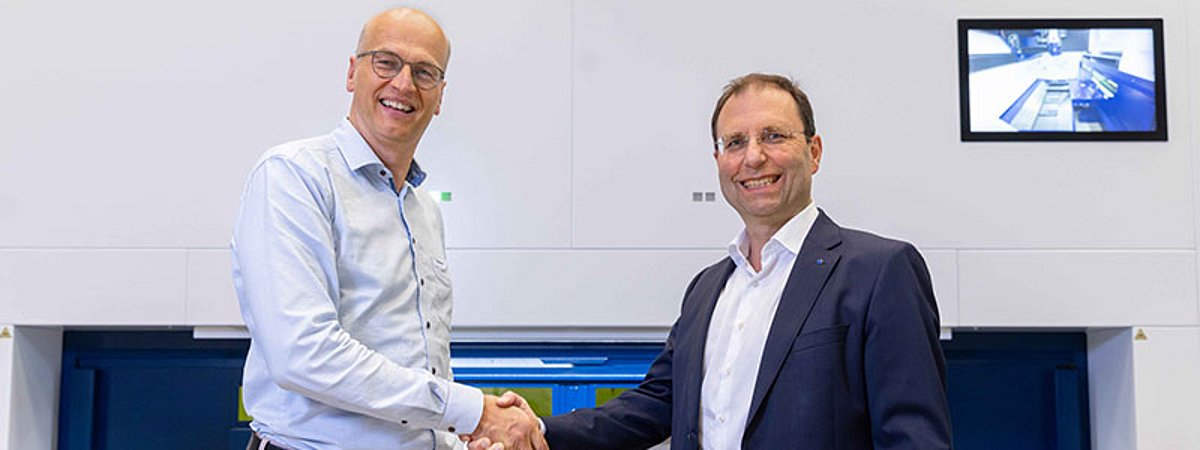Trump: Laser with artificial intelligence

The two companies Trumpf and SiMa.ai agree on a strategic partnership for laser technology with artificial intelligence. The aim is to develop AI chips and software to improve welding, cutting and marking processes.
The high-tech company Trumpf and SiMa.ai, the software-centric system-on-chip company for machine learning, have signed a partnership to develop lasers with artificial intelligence (AI). The aim is to equip several Trumpf laser systems with AI technology in the near future. These include systems for welding, cutting and marking as well as powder metal 3D printers. "AI is of high strategic relevance for Trumpf. Our expertise in laser processes and manufacturing helps us to develop intelligent software for production. SiMa.ai is the ideal partner for this next big step towards intelligent industrial solutions," says Richard Bannmüller, Chief Technology Officer (CTO) at Trumpf Lasertechnik. Both companies bring their respective expertise to the collaboration: Trumpf its laser application know-how and SiMa.ai its MLSoC (Machine Learning System on Chip) technology.
"The rapid acceleration of AI innovation is changing the way people can use new technologies - SiMa.ai's powerful MLSoC and flexible software together with Trumpf's highest level of process understanding enables AI solutions that drive the industry forward. Combined with Trumpf's advanced AI software, SiMa.ai's software-centric platform for all AI edge conditions adapts to any framework, network, model, sensor or modality, enabling it to reach the next level of AI-powered laser technology," says Harald Kröger, Sales Director and Head of the Automotive Business Unit at SiMa.ai. SiMa.ai, headquartered in San Jose, California, with offices in Stuttgart, employs around 200 people. Edge ML applications running entirely on SiMa.ai's chip have ten times the performance and energy efficiency and offer higher intelligence for ML use cases ranging from computer vision to generative AI. Around 90 employees worldwide work on AI at Trumpf, primarily in product development. The collaboration between the two companies is intended to accelerate complex material processing. The powerful, compact and energy-efficient AI chips are integrated directly into the laser systems. The AI-optimized sensors can monitor the quality of the laser welding process in real time and evaluate more than 3,000 images per second. In electric car production, for example, real-time quality testing during laser welding with the help of artificial intelligence (AI) is set to replace separate and complex testing procedures. In addition, battery manufacturers can increase the quality of their production in real time and reduce the reject rate, which could ultimately lower the price of electric cars for consumers.
